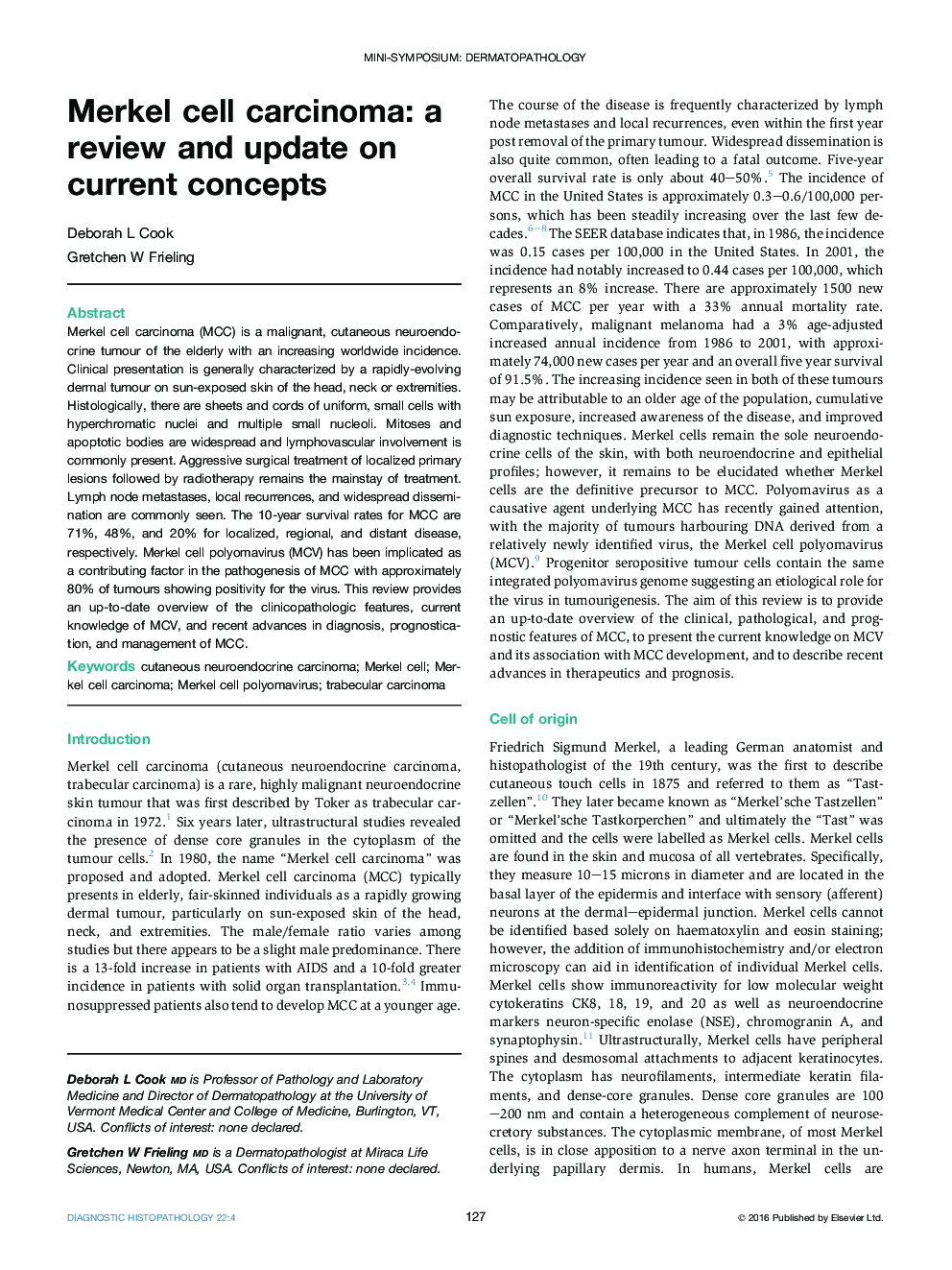| Article ID | Journal | Published Year | Pages | File Type |
|---|---|---|---|---|
| 4130990 | Diagnostic Histopathology | 2016 | 7 Pages |
Merkel cell carcinoma (MCC) is a malignant, cutaneous neuroendocrine tumour of the elderly with an increasing worldwide incidence. Clinical presentation is generally characterized by a rapidly-evolving dermal tumour on sun-exposed skin of the head, neck or extremities. Histologically, there are sheets and cords of uniform, small cells with hyperchromatic nuclei and multiple small nucleoli. Mitoses and apoptotic bodies are widespread and lymphovascular involvement is commonly present. Aggressive surgical treatment of localized primary lesions followed by radiotherapy remains the mainstay of treatment. Lymph node metastases, local recurrences, and widespread dissemination are commonly seen. The 10-year survival rates for MCC are 71%, 48%, and 20% for localized, regional, and distant disease, respectively. Merkel cell polyomavirus (MCV) has been implicated as a contributing factor in the pathogenesis of MCC with approximately 80% of tumours showing positivity for the virus. This review provides an up-to-date overview of the clinicopathologic features, current knowledge of MCV, and recent advances in diagnosis, prognostication, and management of MCC.
